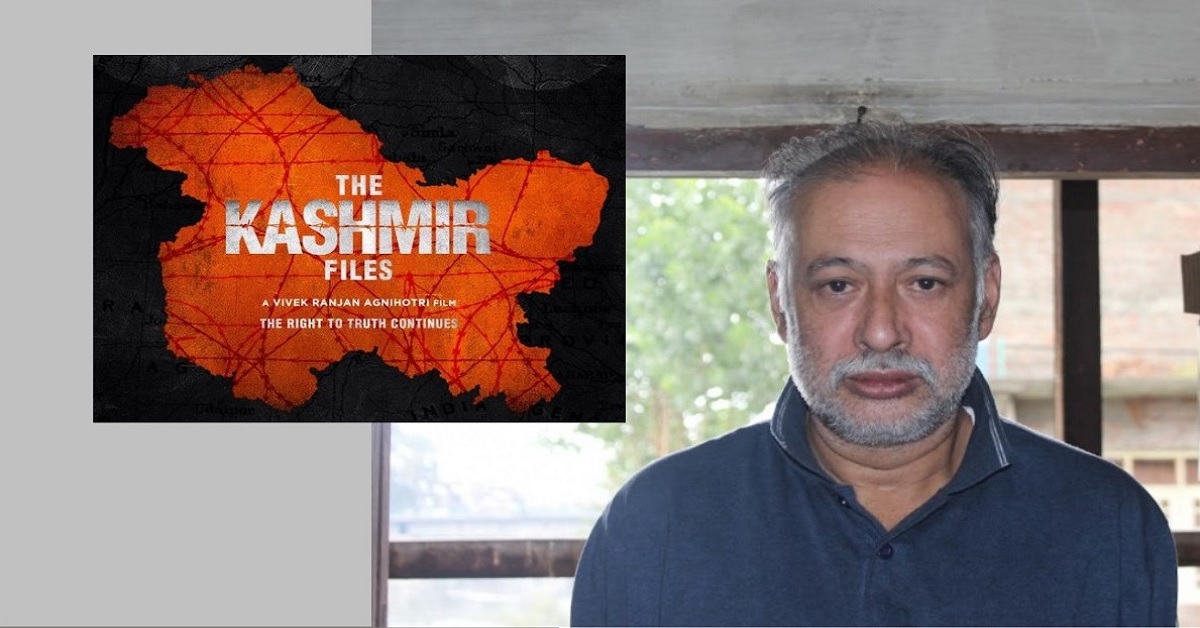
From the timeline of Shiv Kar
Did the Kashmiri Pandit’s exodus happen? Of course it did. It was one of the most heinous, most tragic incidents in our country, no less in seriousness than the partition, or even the holocaust – with which the likes of Anupam Kher seem to compare it over and over again. Of course it happened. No one is denying that. If even one person has to go through what happened during the exodus, it is a historical tragedy. What is the problem then? Why is a film like ‘The Kashmir Files’ being panned as vulgar and dishonorable, while a film like ‘Schindler’s List’ will go down in the halls of art as one that recorded history as it truly happened? The answer is simple – artistic intention.
When Steven Spielberg made ‘Schindler’s List’, he didn’t make it so that people hate Germans. He made it to record history through art. But Vivek Agnihotri’s artistic intentions are questionable. His film, his words, his thoughts are vengeful. Hurt is an essential foundation of the arts. But the moment you become vengeful, the moment you use your art to spread hatred instead of awareness, you cease to be an artist. Then, even if your art is technically brilliant, it will have no artistic merit at all. Your intention of creating a work of art is more important than the art itself. Which is exactly why Griffith’s Birth of a Nation or Riefenstahl’s Triumph of the Will, despite being technically brilliant and academically important studies, will always go down the history of cinema as downright unethical films. Artistic intention. You cannot let hatred and revenge rule over your art.
Facebook: Bhaskar Chattopadhyay
The Kashmiri Pandit Sangharsh Samiti (KPSS), a Srinagar-based group representing those Kashmiri Pandits who, at great risk to their lives and livelihoods, never migrated from the Valley has called The Kashmir Files an attempt to sell the community’s pain for commercial and political “benefits”.
“Pain loses its meaning and becomes valueless when it is sold for commercial and political beliefs and benefits,” the Kashmir Pandit Sangarsh Samiti tweeted.
#Film makers pic.twitter.com/MvVtYxuSBa
— KPSS (@KPSSamiti) November 29, 2022
KPSS president Sanjay Tikoo told the media the tweet was about the film, which he said had caused nothing but harm to the Pandit community. “The film is nothing but commercialisation of our pain, politicisation of our pain,” Tickoo said.
The Kashmir Files, endorsed by the BJP, portrays the 1990 attacks on Pandits in Kashmir in a manner that seeks to demonise Muslims. Nadav Lapid, celebrated Israeli filmmaker and chief jury at the International Film Festival of India, had on Monday said the film was “propaganda” and “vulgar”.
The Samiti chief, who had criticised The Kashmir Files in the past as well, said the film had dealt a blow to decades-long efforts to bridge the differences between the Muslim and Pandit communities in Kashmir.
“The incidents in the filmare 100 per cent true but the picturisation is wrong. (For instance), it shows some Pandits being killed by militants in a village with local Muslims cheering the killings. Such things never happened here,” he said.
Tickoo said the film depicted the pain of the Pandits but not that of the Muslims.
“The film is called The Kashmir Files, not ‘The Kashmir Pandit Files’. But it never touched the (sufferings of the) other side, of people killed in State action,” he said.
Tickoo also said the film, along with the scrapping of Jammu and Kashmir’s special status, had ensured that local Muslims’ sympathy for Hindus in relation to the recent spate of targeted killings was reduced. “The kind of outrage you saw earlier is missing now. Earlier, you had at least 50 to 60 per cent, if not all, who said they wanted the (migrant) Pandits back,” he said.
“It (the film) has endangered our lives. It has also deeply affected the efforts that were happening for the past two decades to bridge the differences (between the two communities).”
While Tickoo criticised the film, he added that if Lapid, the Israeli filmmaker, was questioning the Kashmiri Pandits’ suffering, he should question the Holocaust as well. Lapid had not commented on the plight of the Pandits but was speaking on the propaganda quotient of the film. In fact, Lapid said later that “I did not come to express one position or another on the conflict in Kashmir….”
Tickoo denied that Pandits had hit the streets in Jammu against Lapid, as some news channels had claimed.
He said the Pandits portrayed on TV as protesting Lapid’s comments were actually employees demonstrating against the government’s refusal to relocate them from Kashmir to Jammu following a spate of targeted killings in the Valley.
Tickoo acknowledged that some of the protest leaders had spoken out against the Israeli filmmaker (after the channels had sought their opinion on the subject).
Related:
IFFI jury chair outraged over inclusion of “Kashmir Files”; calls it propaganda
Singapore bans ‘The Kashmir Files’
The Kashmir Files making resident Kashmiri Pandits feel unsafe